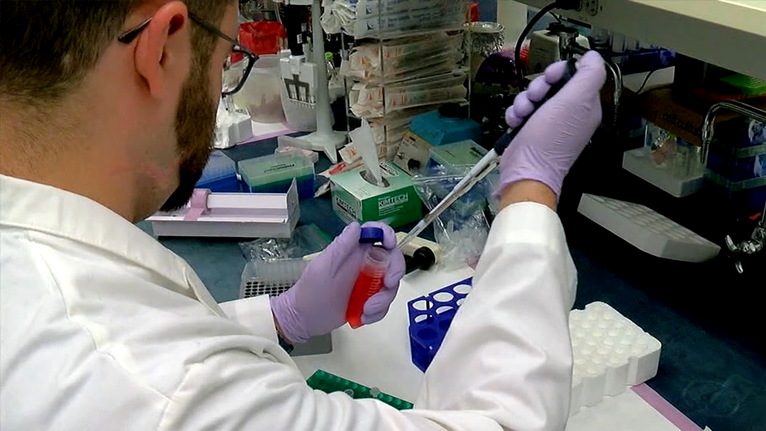Newest Innovations in the Treatment of Colorectal Cancer
As the region’s only adult academic health program, the University of Cincinnati Cancer Center is motivated to improving treatments through participating in local and national clinical trial efforts. One of the latest scientific developments is a new approach to treating rectal cancer, with the goal of moving away from surgery, if possible.
“The problem with rectal cancer is specifically is where it is,” Earl Thompson, MD, surgeon at the University of Cincinnati Cancer Center, describes. “Removing the portion of the bowel that contains the tumor can lead to some lifelong consequences. The hope is that we can preserve normal sphincter functions so patients can go to the bathroom like they always have.”
Attempting to avoid surgery, doctors give patients radiation first, then a full dose of chemotherapy—providing them with an approximately 20% chance of complete disappearance of the tumor, avoiding surgery. Dr. Thompson notes that some patients who don’t respond as successfully to this regimen as others still may benefit from trying.
“Some patients have tumors that reduce in size, allowing surgeons to keep their colon or rectum intact, meaning no ostomy bag, which is a prosthetic medical device that collects waste,” Dr. Thompson says. “Other patients may not be as strong enough after the surgery to go through the additional round of chemotherapy, so this new approach knocks it out of the way first.”
The Academic Health Advantage: The University of Cincinnati Cancer Center Approach to Colorectal Cancer Treatment
With a long history of treating both the simple and very complex cases of colorectal cancer, the University of Cincinnati Cancer Center takes a team approach to developing a personalized treatment plan for each patient. This multidisciplinary collaboration includes surgeons, radiation oncologists, medical oncologists and gastrointestinal cancer experts in radiology and pathology.
“We all meet once a week in our gastrointestinal cancer tumor board to review the optimal treatment paths for the patient,” Dr. Kharofa explains. “This includes reviewing all aspects of their therapy, such as nonoperative management and potential clinical trials that the patient could be eligible for.”
Being diagnosed with colorectal cancer is scary—the University of Cincinnati Cancer Center works hard to lead the way in research, developing individualized treatment plans to ultimately spread hope to our patients and community.
The Gastrointestinal Cancer Center at the University of Cincinnati Cancer Center
Our experts subspecialize in gastrointestinal tract cancers, including the stomach, pancreas, liver, large and small intestine, spleen, colon, anus/rectum, gallbladder and peritoneal cavity. We focus the expertise of the region’s most advanced gastrointestinal cancer team on improving your odds of overcoming these cancers. Our nationally recognized cancer subspecialists offer you access to standard therapies, as well as the latest treatments and leading-edge clinical trials.
For more information, call 513-585-UCCC (8222).


